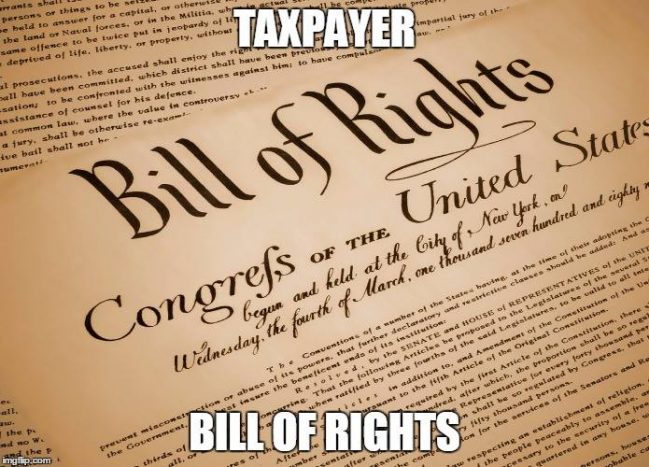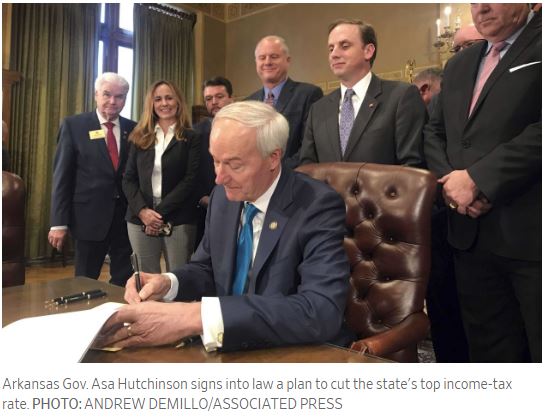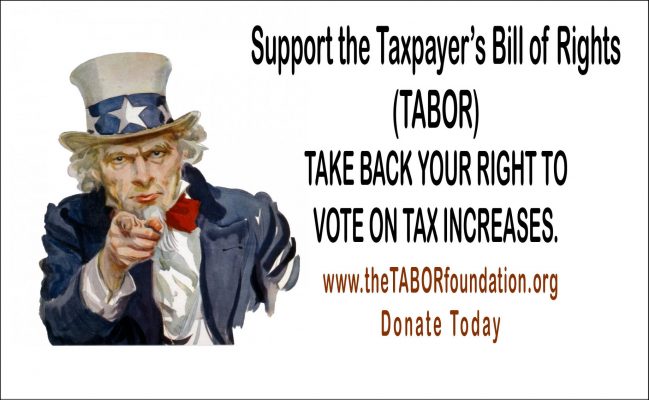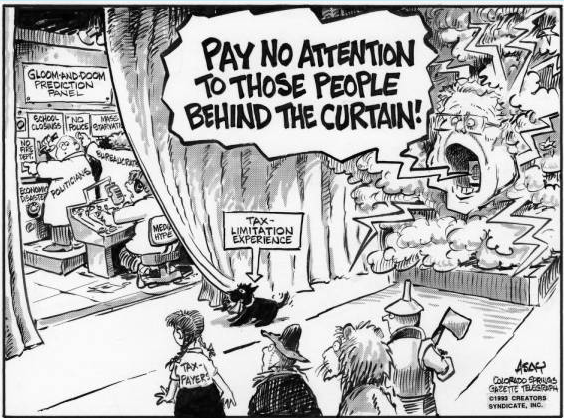Why #TABOR Matters:
Letting you vote on #tax increases.
If it’s worthwhile, then make the case for it instead of trying to ram it down our throats….
#coleg
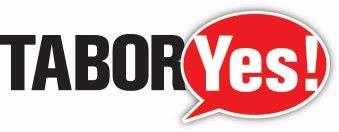
Why #TABOR Matters:
Letting you vote on #tax increases.
If it’s worthwhile, then make the case for it instead of trying to ram it down our throats….
#coleg

Hospital fees that have generated billions of dollars in Colorado are legal and do not violate Colorado’s Taxpayers Bill of Rights, according to a Denver District Court ruling.
The ruling is in favor of the health care policy department and the Colorado Department of the Treasury.
In 2015, the TABOR Foundation filed a lawsuit challenging the constitutionality of the fees. The hospital provider fee is a charge imposed on hospital stays that other states refer to as a “bed tax.”
Hospital fees that have generated billions of dollars in Colorado are legal and do not violate Colorado’s Taxpayers Bill of Rights, according to a Denver District Court ruling.
Colorado hospital fees do not violate TABOR, Denver District Court rules
The measure would amount to the most substantial effort in years to rollback the state’s unique limits on government spending
By James Freeman
March 4, 2019 4:55 p.m. ET

Former Colorado Gov. John Hickenlooper at a campaign house party in Manchester, N.H. last month. PHOTO: ELISE AMENDOLA/ASSOCIATED PRESS
Sen. Bernie Sanders of Vermont is claiming a socialist victory in the battle of ideas. Meanwhile former Colorado Gov. John Hickenlooper is running for President and testing whether economic non-extremists can still win Democratic presidential primaries.
Sunday in Chicago, Mr. Sanders implied that people no longer view him as a Marxist kook. The Chicago Tribune reports on a Sanders speech at Navy Pier:
“Three years ago, they thought we were kind of crazy and extreme, not the case anymore,” he said. “We are not only going to defeat (President Donald) Trump, we are going to transform the United States of America.”
Mr. Sanders has certainly made extremism cool among Democratic presidential candidates. All of his fellow senators seeking the party’s nomination have joined him in co-sponsoring the Green New Deal and its promise of government health care and the end of traditional energy sources. They have also voted for an abortion policy so expansive that it allows adults to decide the fate of children even when they are no longer in the womb. Continue reading
